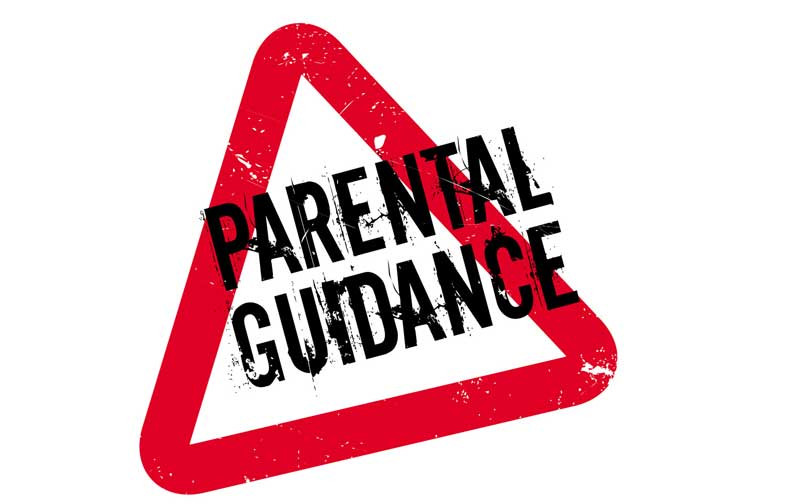
That is the best piece of advice you have ever received? Some famous people were asked for such and some of their responses included: “Don’t die wondering”, “If you are wrong, admit it: if you are right, be quiet”, “Whenever you meet anybody, look for something nice to say about them”. Other responses were more mundane or light-hearted: “Make sure you marry someone who can cook,” “Never cook in suede shoes” and “Never leave the bar first because everyone will talk about you”. Sadly, too many parents are too casual in raising their child and their advice does not go much beyond: “If you can’t be good, then don’t get caught.”
We will have noted how programmes on television are often introduced with the line “The following programme contains themes and scenes not suitable for children. Parental guidance is advised.” That last sentence is the key here: Parental guidance is advised. Let us explore that for a moment.
It is saying that guidance is “advised”, that is, it is being suggested, proposed, recommended; in other words, the implication is that such guidance is not demanded or required. It is saying that we can guide our children if we want to, if we feel like it, if we think it might be worth it, but no pressure to do so. Let us be clear, then: Parental Guidance is not advised — it is demanded, required, insisted, essential. It is not a suggestion, an idea, a comment for us to consider. Parents are not a Children’s Advice Bureau, available if children would like to pop in for a spot of advice, as a Citizens’ Advice Bureau might be seen. Parents are not an Advisory Board, doling out pieces of advice now and then if their child thinks she wants it. Parental guidance is not advised; it is demanded.
However, even that is still not right. We need now to focus on the word “guidance”. Parental Guidance is not always advised, especially for young children — parental instruction, explanation, direction is often required. Our role as parents is to take responsibility for our young children, especially and for the most part make those decisions for them while they are young.
Further to those observations, though, is another important point. The Ratings Bureau is saying that these scenes are not suitable for children; we will say it again — they are not suitable for children. Strangely, they are saying that these scenes are not suitable but in the same breath they are saying that parents are advised to guide their child as to whether she should watch them! If the scenes are not suitable, then no guidance from a parent is required — it is very clear: the scenes are not suitable, end of! No discussion! No advice! No watching!
We are advised (or should that read ‘informed’?) that the Rating Bureau says that the reason that “Parental guidance is advised” is because “there may be some profanity, violence or brief nudity but it is not deemed so intense.” The words “some” and “brief” there imply that a little profanity or nudity is acceptable but the problem there is this: how much exactly is acceptable? Will one set of parents conclude the same as another set with regard to what is “not deemed so intense”? Is violence in cartoon fights “intense”? Is some bullying acceptable? If so, up to what point?
Some parents simply leave it to technology to ‘train’ their children by simply using the remote to press a few buttons to block their child watching such PG programmes, rather than talking to their child about why they are not going to allow her to watch the programme. Other parents take this responsibility by simply saying “No” without any explanation. Yet others do not give any advice, instruction or direction; many do not know what their child is watching.
No, this is not advice to parents, suggesting parents should guide their child in some areas. This is telling! Sadly, the advice many parents give to their child is only along the lines of a former President of the US, Harry S Truman, who said: “The best way to give advice to your children is to find out what they want and advise them to do it.” If nothing else, such ‘advice’ is intense profanity and they will die, not wondering but wandering in a morass of vague, mundane and incompetent advice! In that context, maybe the statement “Parental guidance is advised” should be interpreted as saying that guidance is advised as to who should be allowed to be a parent! Now, that is an adult theme! So do not let your child die wondering what is right and wrong. Take your parental duty seriously.
- Parental guidance is not advised
Keep Reading
- Tim Middleton is the executive director of the Association of Trust Schools [ATS]. The views expressed in this article, however, are solely those of the author in his private capacity and do not necessarily represent the views of the ATS.
- email: [email protected]
- website: www.atschisz











